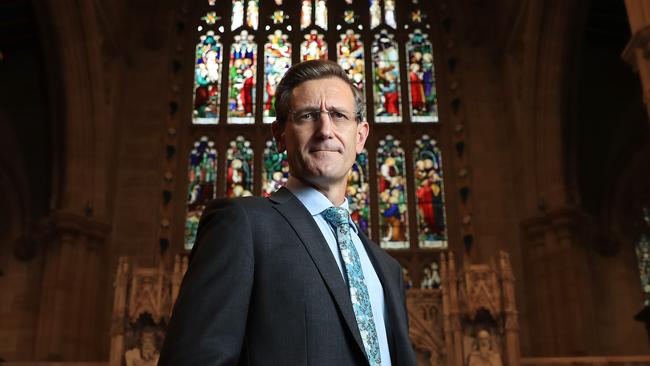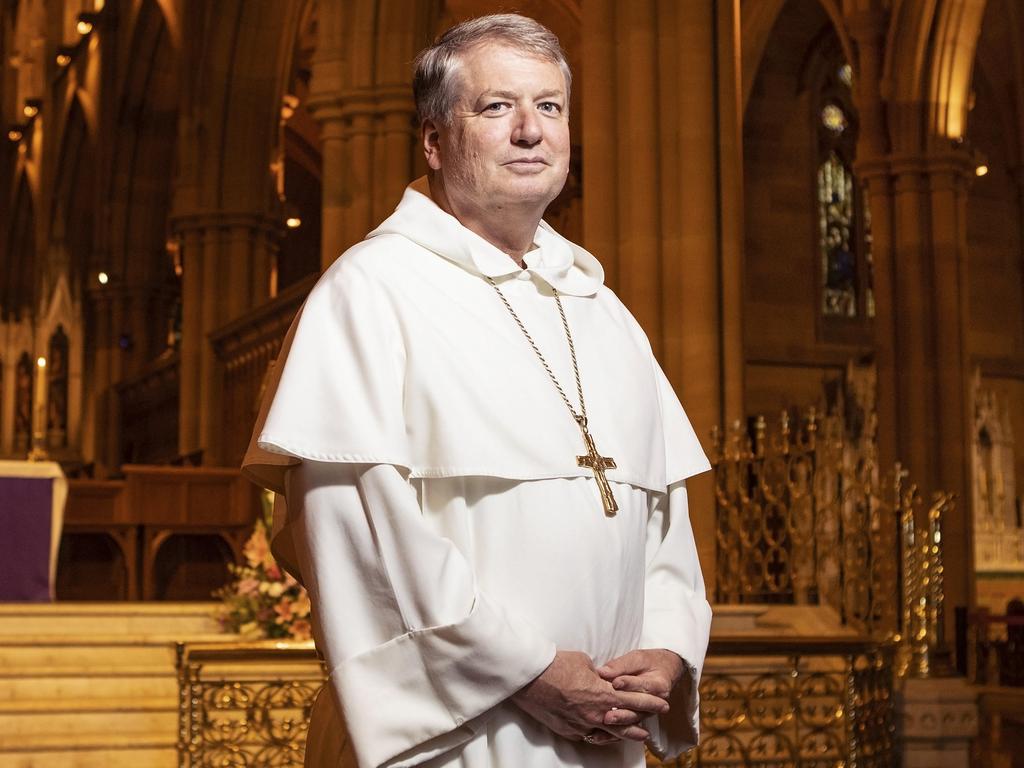
The leaders convey their “deep disappointment” with proposed reforms released for comment by the Australian Law Reform Commission. Those reforms are in response to the Albanese government’s request for laws that will ensure that a religious school “must not discriminate against a member of staff” but may “continue to build a community of faith by giving preference … to persons of the same religion”.
As Anglican Bishop of South Sydney Michael Stead made clear in an interview with ABC Sydney, the ALRC’s proposal that schools be required to employ “a religious studies teacher who doesn’t actually believe (or) practise the things that they’re teaching” mandates hypocrisy. It may seem ludicrous but, as he clarified, the ALRC’s proposal means “you could have the situation where someone is required to teach the Ten Commandments saying ‘You shall not commit adultery’ ”, but then can also say: “I don’t personally believe that and I’m having an affair with the science teacher.”
In respect of the remaining staff within religious schools, the ALRC proposes that a school can require only that a staff member share the applicable beliefs where such is a “genuine occupational qualification”. This test introduces high degrees of uncertainty for schools and employees alike. Many religious schools seek to prefer fellow believers across all roles on the conviction that authentic belief is best modelled within a community of faith.
In the Northern Territory the passage of laws adopting this test late last year led to a dramatic clash between religious groups and the Territory government. So pitched was the level of community concern that the fracas culminated in hundreds of people gathering to sing Amazing Grace outside parliament against the din of the fractious debate inside. Catholic Bishop of Darwin Charles Gauci threatened to shut Catholic schools, asking: “If we cannot have proper Catholic schools in our school (system) … if you cannot be authentic, what’s the point of having them?”
As the ALRC admits: “Restricting religious educational institutions from excluding staff members who do not adhere to particular beliefs of the religion may arguably impact the authenticity or credibility of the institution’s delivery of faith-based education, in the eyes of their religious (and parental) community.” Notwithstanding this candid admission, the ALRC proceeds to propose unprecedented restraints on the rights of parents to ensure the education of their children in accordance with their religious and moral convictions, rights enshrined in international law.
In 2018 an expert panel on religious freedom chaired by former attorney-general Philip Ruddock and comprising Australian Human Rights Commission president Rosalind Croucher, Justice Annabelle Bennett, law professor Father Frank Brennan and constitutional law professor Nicholas Aroney analysed the same international human rights law on which the ALRC purports to rely now. Directly contradicting the ALRC’s proposals, they recognised the value offered by the presence of a “wide variety of faith-based schools in Australia” and recommended protections for those schools that considered preferencing across all staff “essential to their ability to foster an ethos that is consistent with their religious beliefs”.
In 2019 then ALRC president Sarah Derrington proposed a regime for reform that differed in almost every material respect to the ALRC’s current proposals. Responding to terms of reference that were, however, the same in the material respects, and also proceeding from an analysis of international human rights law, her proposal sought to guarantee the continuing existence of religious schools in this country. While further thought on Derrington’s proposal was required, it also recognised the important contribution made by religious schools and the need to protect their ongoing religious ethos.
Finally, the ALRC proposes that the regime exempting non-educational religious bodies should be subsequently reviewed to reduce “complexity, inconsistency and incoherence within” the Sex Discrimination Act arising from the reforms concerning religious schools.
On the face of it, reducing inconsistency would see the broad reforms proposed by the ALRC for religious schools applied to other religious institutions. Are churches, mosques and synagogues also to be required now to hire staff who do not share their religious beliefs or who have no religious beliefs (reflecting the position recently enacted in Victoria)? Will these bodies also be required to employ leaders who are willing to teach precepts such as the Ten Commandments but who are not otherwise required to abide by them?
The ALRC’s proposals, if enacted, would be the most fundamental reform of the law affecting religious schools that this country has undertaken since the enactment of the Sex Discrimination Act in 1984. Parents across the nation are rightly alarmed.
Mark Fowler is adjunct associate professor at the University of Notre Dame school of law, Sydney, and at the University of New England school of law.






The public release on Monday of a letter signed by the leaders of all major faith traditions addressed to the federal Attorney-General has reignited the debate on religious freedoms in this country.